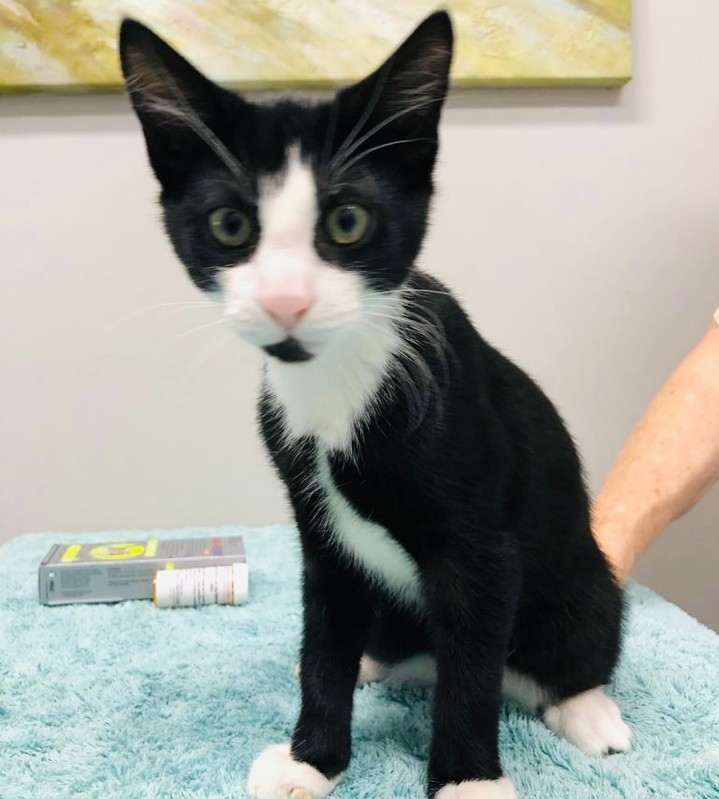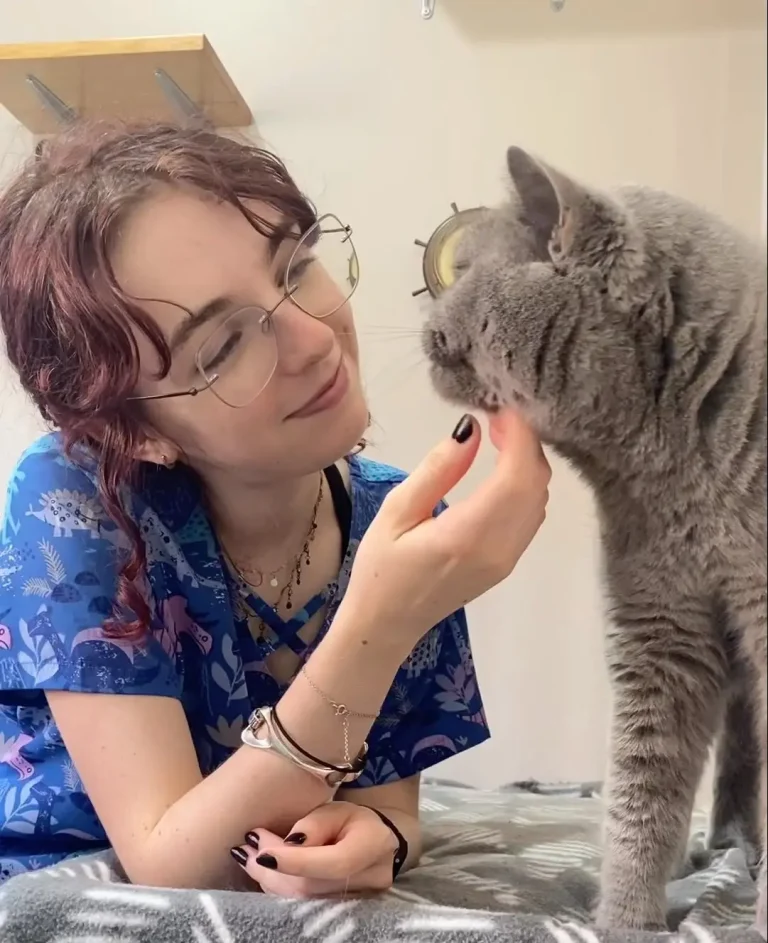Cats are beloved pets and companions to millions of people around the world. They provide us with love, comfort, and entertainment. As responsible cat owners, it is our duty to ensure that our feline friends receive proper care and attention, including regular vaccinations.
Vaccinations play a crucial role in keeping cats healthy and protecting them from various diseases. Just like humans, cats can also suffer from infectious diseases that can be prevented through vaccination. These diseases can range from mild illnesses to life-threatening conditions.
In this article, we will delve deeper into why cats need vaccinations and the importance of keeping their vaccinations up-to-date. We will also discuss the types of vaccines available for cats and when they should be administered. So let’s get started!
What is Vaccination?
Vaccination is the process of administering a vaccine to stimulate an immune response in cats. It involves introducing a small amount of weakened or killed disease-causing agents, known as antigens, into the cat’s body. These antigens trigger the cat’s immune system to produce antibodies and other protective cells that fight against potential diseases.
The first vaccination was developed in 1796 for smallpox, and since then, vaccines have been instrumental in preventing and eradicating many deadly diseases in humans and animals alike. Plus, with advancements in medical technology and research, vaccines have become safer and more effective than ever before.
Plus, with advancements in medical technology and research, vaccines have become safer and more effective than ever before.
Reasons Why Cats Need Vaccinations
Now that we understand what vaccination is, let’s explore why it is vital for cats to receive them. Here are the top reasons why cats need vaccinations:
Protection against Deadly Diseases
Vaccinations are the best defence against deadly diseases that can affect cats. Some of the most common and dangerous diseases that cats can contract include feline distemper, feline herpes virus, feline calicivirus, and rabies.
By vaccinating your cat, you are providing them with immunity against these deadly diseases. This means that if they come into contact with the virus in the future, their immune system will be able to fight it off and prevent them from getting sick.
Prevent the Spread of Diseases
One unvaccinated cat can potentially infect multiple other cats and animals if they carry a contagious disease. By keeping your cat up-to-date on their vaccinations, you are not only protecting them but also preventing the spread of diseases to other animals in the community.
This is especially important in multi-cat households or if your cat goes outside and interacts with other cats. Vaccinations can help create a barrier against contagious diseases and keep all feline friends healthy.
Protects Public Health
Some diseases that affect cats are also a threat to public health. By vaccinating your cat against these diseases, you are not only protecting them but also the people around them. This is especially important for indoor/outdoor cats or if you have children or immunocompromised individuals living in your household.
Vaccinations help create herd immunity, which means that when a significant portion of the population is vaccinated against a disease, it becomes harder for the virus to spread and protects those who cannot receive vaccinations.
Cost-Effective
While vaccinations may seem like an added expense, they are actually cost-effective in the long run. Vaccinations can prevent your cat from getting seriously ill and requiring expensive medical treatments or hospitalisation.
Additionally, if your cat contracts a contagious disease, you will need to pay for their treatment as well as quarantine costs and potentially any damages caused by them spreading the disease to other animals.
Investing in regular vaccinations for your cat is a small price to pay for their overall health and well-being. Plus, many veterinary clinics offer affordable vaccination packages that include all necessary vaccines for cats at different stages of their lives.
So these are the significant reasons why cats need vaccinations. We hope this article has helped you understand the importance of keeping your cat’s vaccinations up-to-date and how it can benefit both them and the community as a whole.
Types of Vaccines for Cats

There are different types of vaccines available for cats, each targeting specific diseases. Some common vaccines for cats include:
Core Vaccines
Core vaccines are the essential vaccinations recommended for all cats. These include the feline distemper (panleukopenia), feline herpes virus, feline calicivirus, and rabies vaccines.
The feline distemper vaccine protects against a highly contagious virus that can be fatal to cats. Feline herpes virus and calicivirus vaccines protect against respiratory infections commonly seen in cats.
Plus, most boarding facilities and grooming salons require proof of these core vaccinations before admitting your cat.
Non-Core Vaccines
Non-core vaccines are recommended for cats based on their lifestyle and risk factors. These include the feline leukaemia virus (FeLV) vaccine, feline immunodeficiency virus (FIV) vaccine, and chlamydia vaccine.
The FeLV vaccine protects against a highly contagious and often fatal disease that can be transmitted through contact with an infected cat’s saliva. The FIV vaccine is recommended for outdoor cats or those at high risk of fighting with other cats as it prevents a deadly viral infection that attacks the immune system.
The chlamydia vaccine is usually given to kittens in multi-cat households or catteries as the bacteria can cause respiratory infections and eye infections in cats.
Optional/Additional Vaccines
There are also optional or additional vaccines available for cats, such as the feline infectious peritonitis (FIP) vaccine and the bordetella bronchiseptica vaccine.
It is essential to discuss your cat’s lifestyle and risk factors with your veterinarian to determine which non-core and optional vaccines may be necessary for their specific situation.
These are just some of the many reasons and types of vaccines available for cats. Remember to consult with your veterinarian about a vaccination schedule that is appropriate for your cat’s age, lifestyle, and overall health.
Can Vaccinations Cause Adverse Reactions?
Like any medical procedure, vaccinations can sometimes cause adverse reactions. However, severe reactions are rare and usually occur within minutes to hours after receiving a vaccine.
Some common signs of an adverse reaction to a vaccine may include fever, mild swelling at the injection site, lethargy, and loss of appetite. These reactions typically resolve on their own within a day or two.
More serious reactions may include allergic reactions or anaphylaxis, which can be life-threatening. If your cat experiences difficulty breathing, extreme swelling around the face or neck, hives, vomiting/diarrhoea, or collapse after receiving a vaccine, seek immediate veterinary care.
If your cat has had a previous reaction to a vaccine, it is crucial to inform your veterinarian before their next vaccination appointment. They may recommend taking extra precautions or using an alternative vaccine.
In rare cases, some cats may have medical conditions that prevent them from receiving certain vaccines. It is essential to discuss any pre-existing health conditions with your veterinarian before vaccinating your cat.
Does My Indoor Cat Need Vaccines?
Some cat owners may wonder if their indoor cats need vaccines since they are not exposed to the same risks as outdoor cats. However, it is still essential to vaccinate your indoor cat.
While indoor cats are less likely to come into contact with infectious diseases, they can still be at risk of contracting certain viruses or bacteria through exposure to other animals (such as visiting pets), contaminated objects brought into the home, or even from you after coming into contact with an infected animal.
Additionally, some diseases that indoor cats can contract, like feline distemper, are fatal and highly contagious. By ensuring your cat’s vaccinations are up-to-date, you not only protect them but also prevent the spread of these diseases to other animals and potentially humans.
It is also important to remember that cats can be curious creatures, and they may find ways to escape from your home. In this case, if your cat is not vaccinated, they could be in danger if they come into contact with an infected animal or object while outside.
Also, keep in mind that vaccinations are not just about protecting your cat. They also play a crucial role in maintaining herd immunity within the feline population and preventing outbreaks of diseases that can have devastating effects on cats as a whole.
Mistakes to Avoid When Vaccinating Your Cat
When it comes to vaccinating your cat, there are a few common mistakes that owners should avoid. Here are some things to keep in mind to ensure your cat’s vaccination process goes smoothly and effectively:
- Not following a proper vaccination schedule: Vaccinations should be given at specific intervals for maximum effectiveness. Skipping or delaying vaccinations can leave your cat vulnerable to diseases.
- Administering too many vaccines at once: Giving multiple vaccines in one visit can overwhelm your cat’s immune system and increase the risk of adverse reactions. It is best to follow a recommended schedule and space out vaccinations accordingly.
- Vaccinating an already sick cat: If your cat is ill or has a weakened immune system, it is not always advisable to give them vaccines as it can further compromise their health. Wait until your cat is healthy before vaccinating them.
- Not consulting with a veterinarian: While there may be information available online about vaccinations, it is essential to consult with a veterinarian who can assess your cat’s individual needs and risks. They can also provide guidance on the appropriate vaccines and schedule for your cat.
Contact Blakehurst Vet For Your Cats Vaccinations Needs
Blakehurst Vet offers a wide range of services to cater to all your pet’s needs. Our spacious and modern facility is equipped with experienced doctors and nurses who are dedicated to providing personalised care for your furry best friend. We pride ourselves on creating a safe and friendly environment for both you and your pets.
We understand the importance of prompt medical attention when it comes to your pet’s well-being. That’s why we offer same-day appointments, with urgent matters always given top priority. You can easily book an appointment online or call our friendly team on 9547 2750.
At Blakehurst Vet, we believe in offering the best possible care for your pets, which is evident from our luxurious cat hotel where your feline friends can enjoy a holiday with personalised attention, windows, and even TVs! We also offer free puppy play for young pups to socialise and interact with other dogs before heading to the dog park.
Our services include puppy and kitten care, where we provide expert advice on vaccinations, parasite prevention, spay and neuter surgery, and more. Additionally, our skilled vets perform surgeries using the latest equipment in our state-of-the-art surgical theatre.
So call us at 9547 2750 or visit our facility at 1002 King Georges Road, Blakehurst to experience the best veterinary care for your furry family members.
FAQs
Why should my indoor cat be vaccinated?
Even if your cat remains indoors, getting your indoor cat vaccinated is crucial to protect against diseases that can infect cats, even without direct contact with the outside. Diseases like feline viral rhinotracheitis and calicivirus can be airborne or spread through indirect contact.
What is the importance of the feline leukemia vaccine?
The feline leukemia vaccine is vital as it protects against feline leukemia, a serious disease that can suppress the immune system of cats. It is especially important for kittens and young adult cats who are at higher risk. The first feline leukemia vaccine initiates immunity, which is then maintained through boosters.
What does the distemper combination vaccine protect against?
The distemper combination vaccine, often referred to as the FVRCP vaccine, protects cats from feline viral rhinotracheitis, calicivirus, and panleukopenia. These are common viruses that can cause severe respiratory and gastrointestinal symptoms in cats.
How can vaccinations prevent diseases in adult cats?
Vaccinations in adult cats play a crucial role in preventing diseases throughout their life. Even as an adult cat, maintaining updated vaccinations can prevent serious health issues and the spread of infectious diseases like feline leukemia fecal exam and feline viral rhinotracheitis.
Conclusion
Even though indoor cats may have a lower risk of contracting diseases, it is still essential to vaccinate them. Vaccinations not only protect your cat but also prevent the spread of diseases within the feline population. It is crucial to avoid common mistakes when vaccinating your cat and consult with a veterinarian for personalised recommendations.
At Blakehurst Vet, we offer comprehensive services for your pet’s needs and strive to provide the best care possible. Contact us today for all your cat’s vaccination needs and other veterinary services.

